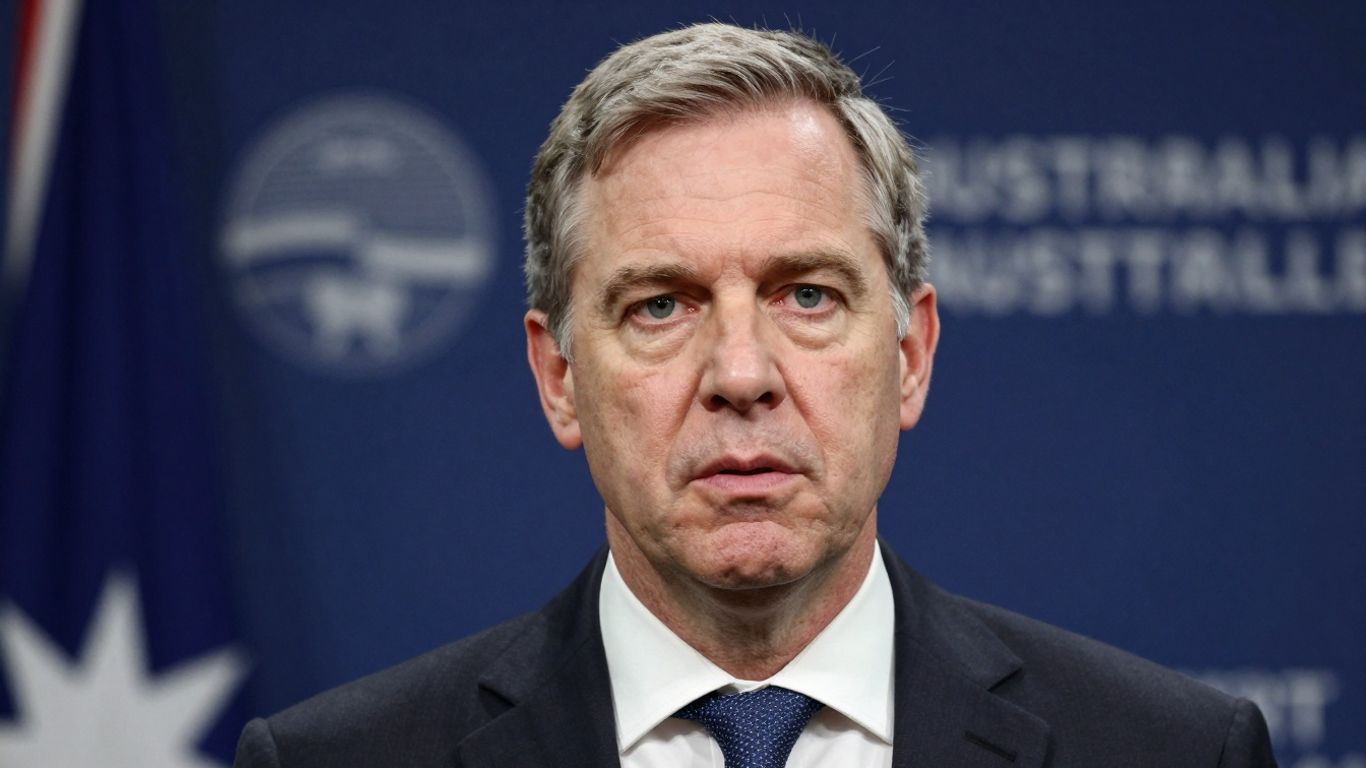Finding the right funding for your community project in Victoria can feel like a puzzle. There are heaps of opportunities out there, but figuring out which ones fit your needs can take time. This guide is here to help make that process a bit simpler, focusing on community grants Victoria has to offer. We’ll walk through where to look, who can apply, and how to put your best foot forward.
Key Takeaways
- Victoria offers a range of funding options from government bodies, private foundations, and corporate programs. Understanding these different sources is the first step to finding community grants Victoria supports.
- Eligibility for community grants Victoria varies, but generally includes non-profits, charities, and sometimes community-led initiatives or small businesses with a clear community benefit.
- Successfully applying for community grants Victoria involves clearly defining your project’s needs, researching thoroughly to find the best fit, and writing a proposal that clearly explains your project and its expected impact.
- Common challenges like standing out from other applicants, meeting strict eligibility rules, and managing application deadlines can be overcome with careful planning and attention to detail.
- Utilise online grant databases, connect with local philanthropic networks, and don’t hesitate to seek expert advice to improve your chances of securing community grants Victoria.
Understanding Community Grants Victoria Opportunities
Finding the right funding can feel like a puzzle, but Victoria has a whole heap of grants available if you know where to look. It’s not just one big pot of money; there are different types of organisations offering grants, and they all have their own reasons for giving them out. Getting a handle on these different sources is the first step to securing the funds you need.
Exploring Government Grants in Victoria
Governments at all levels – federal, state, and local – are major players when it comes to grants. They often fund projects that align with public policy goals, like boosting local economies, improving community services, or supporting innovation. For example, the Victorian Government might offer grants for small businesses looking to adopt new technology or for community groups wanting to improve local parks. These grants can be quite substantial, but they often come with specific requirements and reporting obligations. It’s worth checking the Victorian Government’s grants portal regularly, as new opportunities pop up all the time.
Discovering Private Foundation Funding
Beyond government bodies, there are many private foundations and trusts operating in Victoria. These organisations are often established by individuals or families with a philanthropic mission. They tend to focus on specific areas, such as arts and culture, education, health, or social welfare. For instance, a foundation might be dedicated to supporting youth programs or environmental conservation. While they might not have the same volume of grants as the government, their funding can be very significant for targeted projects. You’ll need to research foundations whose goals match your organisation’s mission.
Leveraging Corporate Social Responsibility Grants
More and more businesses are setting aside funds for community projects as part of their Corporate Social Responsibility (CSR) efforts. These grants are a way for companies to give back to the community and improve their public image. They might fund projects related to education, health, environmental sustainability, or local community development. For example, a large company might offer grants to support local sports clubs or initiatives that promote digital literacy. These grants can be a great source of funding, especially if your project aligns with the company’s values and business operations.
It’s easy to get overwhelmed by the sheer number of grant opportunities out there. The key is to be organised and focus your efforts on grants that genuinely align with what your project aims to achieve and who you are as an organisation.
Who Can Access Community Grants Victoria Funding?

So, who exactly can get their hands on this community grant money in Victoria? It’s not just for one type of group, which is pretty great. Basically, if you’re doing good work in the community, there’s a decent chance you might be eligible for some form of funding. It really depends on what the grant is for and who’s offering it.
Eligibility for Nonprofits and Charities
This is probably the biggest group that benefits from community grants. Nonprofits and charities are often the backbone of local support systems, and grants help them keep the lights on and expand their services. Think about organisations providing aged care, running youth programs, or offering support for people experiencing homelessness. These groups often need funding for everything from day-to-day running costs to specific projects. For example, a charity might need funds to run a new mental health workshop or upgrade their facilities. To be eligible, you’ll usually need to be an incorporated entity with an Australian Business Number (ABN) and have your reporting up-to-date. Some specific programs, like the Multicultural Festivals and Events Program, have clear guidelines stating that only not-for-profits or social enterprises can apply, and they must be incorporated and have an ABN [5587].
Opportunities for Small Businesses
It’s not all about charities, though. Small businesses can also tap into grant funding, especially if their work has a positive community impact or supports innovation. This could be anything from a local cafe running a program to help unemployed youth gain work experience, to a tech startup developing a new app for community safety. Government bodies and even some private foundations offer grants aimed at boosting local economies, encouraging new ventures, or supporting businesses in specific sectors that have been hit hard. Keep an eye out for grants focused on economic development or small business growth.
Supporting Community-Led Initiatives
Grants aren’t just for established organisations. Many funding bodies are keen to support grassroots, community-led projects. These are often smaller initiatives, driven by local residents who see a need and want to do something about it. Think neighbourhood gardening projects, local history documentation, or small events that bring people together. These might not have a formal organisational structure, but they can still be incredibly impactful. Some foundations offer smaller grants specifically for these kinds of projects, making them accessible to individuals or informal groups.
It’s important to remember that each grant will have its own specific set of rules about who can apply. Always read the guidelines carefully before you start putting an application together. What works for one grant might not work for another.
Here’s a quick look at who might be eligible:
- Nonprofit Organisations: Registered charities, community groups, and social enterprises.
- Small to Medium Enterprises (SMEs): Businesses with a community focus or innovative projects.
- Local Government Agencies: Sometimes partner on projects or receive funding for community services.
- Informal Community Groups: Groups of residents working on a specific local project.
- Educational Institutions: For specific research or community outreach programs.
Navigating the Community Grants Victoria Application Process
Applying for community grants in Victoria can feel a bit like trying to solve a puzzle, but with the right approach, it’s totally doable. It’s not just about finding money; it’s about making sure your project gets the support it needs to really make a difference. The key is preparation and a clear plan.
Defining Your Project’s Needs
Before you even start looking at grant opportunities, you need to get crystal clear on what your project actually requires. Think about the nitty-gritty details. What specific costs are involved? Are you looking for funding for equipment, staff time, materials, or something else entirely? Breaking down your needs into tangible items helps you understand the exact amount you need to ask for. It also shows funders you’ve done your homework and have a solid grasp of your project’s scope.
Here’s a quick way to think about it:
- What is the problem you’re trying to solve? Be specific.
- What are your project’s main goals? What do you want to achieve?
- What activities will you undertake? List the steps involved.
- What resources do you need? This includes money, people, and materials.
- What will be the outcome? How will you measure success?
Thorough Research for the Right Fit
Once you know what you need, the next step is finding the grants that actually match. It’s easy to get excited about any grant that comes your way, but applying for something that isn’t a good fit is a waste of everyone’s time. You want to find funders whose priorities align with your project’s goals. This means digging a bit deeper than just the grant title. Read the funder’s mission statement, look at the projects they’ve funded before, and check out their annual reports if they’re available. This kind of research helps you understand what they’re really looking for. You can often find great leads by looking at local council websites for opportunities specific to your area.
Crafting a Compelling Grant Proposal
This is where you get to sell your project. A grant proposal isn’t just a list of needs; it’s a story about why your project matters and why you’re the best organisation to carry it out. Start with a clear, concise summary that grabs the reader’s attention. Then, detail your project, explaining the problem, your proposed solution, and how you’ll implement it. Be realistic about your budget and explain how the funds will be used. Don’t forget to talk about your organisation’s track record and why you’re capable of delivering the project successfully. It’s also a good idea to include a section on how you’ll evaluate the project’s success and report back to the funder.
Think of your proposal as a conversation with the funder. You’re explaining your vision, showing them you’ve thought through the details, and convincing them that investing in your project is a smart move that will lead to positive change in the community.
Overcoming Common Hurdles in Grant Seeking
Applying for grants can feel like a bit of a puzzle sometimes, right? You’ve got a great idea, you know it’ll make a difference, but getting the funding can be tricky. Let’s talk about some of the common roadblocks people hit and how you can get around them.
Standing Out in a Competitive Landscape
So, you’ve found a grant that looks perfect. The only catch? So has everyone else. Grants are popular, and that means you’re up against other organisations with good ideas too. The key is to show what makes your project unique. Don’t just say you want to help the community; explain how you’ll do it differently or better. Think about your organisation’s specific strengths and the particular needs your project addresses. A tailored approach always works better than a generic one. It’s about showing the funder why your project is the one they should back.
Meeting Specific Eligibility Criteria
This one trips up a lot of people. Every grant has a list of rules – who can apply, what the money can be used for, where the project needs to happen. It’s easy to skim these, but you really need to read them carefully. Missing even one small detail can mean your application gets tossed out before anyone even reads it. It’s worth spending time making sure you tick every single box. If you’re unsure about anything, don’t be afraid to contact the grant provider for clarification. It’s better to ask than to assume.
Effective Time Management for Applications
Grant applications take time. You need to do your research, write the proposal, gather supporting documents, and then submit it all before the deadline. If you’re juggling this with your usual workload, it can get pretty hectic. A good strategy is to break down the application into smaller tasks and set mini-deadlines for yourself. Start early, even if it’s just brainstorming ideas or looking for the right grant databases. Having a clear timeline helps you stay on track and avoids that last-minute panic. It’s also a good idea to keep copies of common documents you might need, like your organisation’s annual report or financial statements, so they’re ready to go.
Sometimes, the biggest hurdle isn’t the complexity of the application itself, but the sheer amount of effort required to prepare it properly. Being organised from the start makes a huge difference.
Here’s a quick look at how to approach the timeline:
- Research Phase: Allocate time to find suitable grants and understand their requirements.
- Planning & Writing: Dedicate blocks of time for outlining, drafting, and refining your proposal.
- Gathering Documents: Start collecting necessary attachments well in advance.
- Review & Submission: Allow time for proofreading and final submission.
Essential Resources for Community Grants Victoria Success

Finding the right grant can feel like a bit of a puzzle, can’t it? There are so many out there, and it’s easy to get lost. But don’t worry, you don’t have to figure it all out on your own. There are some great places to get help and find the opportunities that actually fit what you’re trying to do.
Utilising Online Grant Databases
Think of online grant databases as your treasure maps for funding. Instead of spending hours clicking through endless government websites or foundation pages, these platforms do a lot of the heavy lifting for you. They pull together information from various sources, making it way easier to see what’s available. You can often filter by location, type of organisation, and even the project area you’re interested in. This saves a massive amount of time and helps you zero in on grants that are a good match from the get-go.
Some databases are run by government bodies, while others are managed by private companies. It’s worth checking out a few to see which ones give you the best results for Victorian community projects.
Connecting with Philanthropic Networks
Philanthropic networks are basically groups of people and organisations who are passionate about giving back. They often have a good handle on what grants are available, especially from private foundations and trusts. Joining these networks, or even just following their work, can give you insights into funding trends and upcoming opportunities. They might also host events or workshops where you can learn more and even meet potential funders or people who have successfully secured grants before.
These networks can be a goldmine for understanding the ‘why’ behind certain grants and what funders are really looking for beyond the application form. It’s about building relationships and understanding the broader community funding landscape.
Seeking Expert Advice and Support
Sometimes, you just need a bit of expert guidance. Grant writing can be tricky, and there are professionals out there who specialise in helping organisations like yours. This could be a grant writer who can help you craft a winning proposal, or a consultant who can help you identify the best grants to apply for in the first place. They know the ins and outs of what funders want to see and can help you avoid common mistakes.
Don’t underestimate the value of a second pair of eyes on your application. An experienced advisor can spot weaknesses you might have missed and suggest ways to strengthen your case. It’s an investment that can pay off significantly in securing the funding you need.
Here’s a quick look at who might offer this kind of help:
- Grant Writing Services: Professionals who write grant applications for a fee.
- Consultants: Offer broader advice on grant strategy, identifying opportunities, and application support.
- Peak Bodies: Industry or sector-specific organisations that sometimes offer advice or resources to their members.
- Local Government Support: Some councils have staff who can point you towards local funding opportunities and resources.
Making an Impact with Your Grant Funding
So, you’ve managed to snag a grant – congratulations! That’s a huge step. But the work isn’t over; in fact, it’s just beginning. Now comes the really important part: making sure that funding actually makes a difference. It’s not just about spending the money; it’s about spending it wisely and showing everyone involved that it was a good investment.
Tailoring Applications to Funder Priorities
When you’re filling out that application form, it’s easy to just talk about your project. But remember, someone else is reading it, and they have their own goals. Think about what the grant provider cares about. Are they focused on, say, improving local parks, or maybe supporting young people in education? You need to show them how your project fits perfectly with what they want to achieve. It’s like trying to get a job – you wouldn’t just talk about yourself; you’d explain why you’re the best person for that specific role. For example, if a funder is keen on environmental projects, highlight the green aspects of your initiative. If they’re all about community connection, make sure that comes through loud and clear. This is why understanding the 2025 Community Grants Program and its specific funds is so important – you can then align your project to their stated aims.
Sharing Your Organisation’s Unique Story
Grants are often awarded not just for the project itself, but for the organisation behind it. What makes your group special? What’s your history, your passion, your unique approach? Don’t be shy about sharing this. Maybe you’re a small team with a massive heart, or perhaps you’ve overcome significant challenges to get where you are. These are the things that make funders connect with you on a human level. A compelling narrative can be just as persuasive as a detailed budget. Think about the journey that led you to this project and what drives your team. This personal touch can really set you apart from other applicants.
Demonstrating Measurable Project Outcomes
This is where you prove your project is a success. Funders want to see results, not just good intentions. You need to be able to show, with numbers or clear examples, what your grant has achieved. This means setting clear goals from the start and tracking your progress.
Here are some ways to think about measuring impact:
- Quantitative Data: How many people did you help? How much money did you save? What was the increase in participation?
- Qualitative Data: What did participants say about the program? How did it change their outlook? Were there any unexpected positive side effects?
- Long-Term Impact: How will your project continue to make a difference after the funding period ends? Are you building capacity or creating sustainable change?
Showing clear, measurable outcomes is the best way to build trust with funders and increase your chances of getting future support. It demonstrates accountability and a genuine commitment to making a difference in the community.
Wrapping Up Your Grant Journey
So, that’s the lowdown on finding grants here in Victoria. It might seem like a lot at first, but remember, there are heaps of opportunities out there for all sorts of projects and organisations. The key is to do your homework, get clear on what you need, and put together a solid application that really shows what you’re about. Don’t get discouraged if it takes a bit of time or if you don’t get the first one you apply for. Keep at it, learn from each attempt, and you’ll be well on your way to securing the funding that can make a real difference for your community. Good luck out there!
Frequently Asked Questions
What kinds of community grants are available in Victoria?
Victoria has heaps of grants! You can find them from the government (federal, state, and local councils), private foundations that support good causes, and even from big companies as part of their social responsibility programs. There’s a lot out there, so it’s worth looking around.
Who can apply for these grants?
Lots of people and groups can apply! This includes charities and non-profit organisations, but also small businesses looking for a leg up. Even community-led projects that aren’t part of a formal organisation can often get support. If you’re doing something good for the community, there’s probably a grant for you.
How do I find the right grant for my project?
First, get really clear on what your project needs money for. Is it a specific event, ongoing costs, or something else? Then, do your homework! Look for grants that match what you need and what the grant giver cares about. It’s like finding the perfect puzzle piece.
What makes a grant application stand out?
To make your application shine, tell a great story about your project and why it’s important. Show how your work fits exactly with what the grant funder is looking for. Also, be super clear about how you’ll measure your success and show the real impact you’ll make.
What if my application isn’t successful?
Don’t get too discouraged if you don’t get a grant the first time. It’s a competitive world out there! Check the feedback if they give it, see if you missed any details, and try again. Sometimes you just need to tweak your application or find a different grant that’s a better fit.
Are there resources to help me with grant applications?
Absolutely! There are online databases that list grants, and organisations like Philanthropy Australia can offer guidance. Sometimes it’s helpful to connect with people who have applied for grants before or even get advice from experts who help write proposals. You don’t have to do it all alone!





